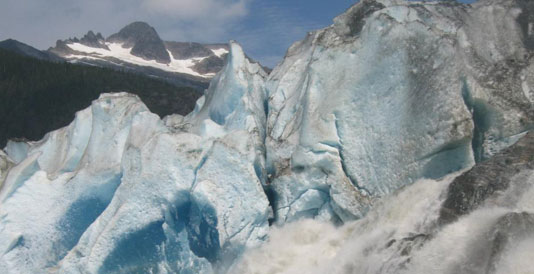 January 20, 2015 - As the Earth warms and glaciers all over the world begin to melt, researchers and public policy experts have focused largely on how all of that extra water will contribute to sea level rise. But another impact lurking in that inevitable scenario is carbon. More specifically, what happens to all of the organic carbon found in those glaciers when they melt?
January 20, 2015 - As the Earth warms and glaciers all over the world begin to melt, researchers and public policy experts have focused largely on how all of that extra water will contribute to sea level rise. But another impact lurking in that inevitable scenario is carbon. More specifically, what happens to all of the organic carbon found in those glaciers when they melt? That’s the focus of a new paper by a research team that includes Florida State University assistant professor Robert Spencer. The study, published in Nature Geoscience, is the first global estimate by scientists at what happens when major ice sheets break down.
“This is the first attempt to figure out how much organic carbon is in glaciers and how much will be released when they melt,” Spencer said. “It could change the whole food web. We do not know how different ecological systems will react to a new influx of carbon.”
FSU Press Release: http://news.fsu.edu/Top-Stories/Study-Melting-glaciers-have-big-carbon-impact
Nature Geoscience Article: http://dx.doi.org/10.1038/ngeo2331











